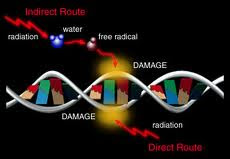Here's an example of a useful concept that lacked impact because it was delivered without a visual aid:
'There are known knowns; there are things we know that we know. There are known unknowns; that is to say there are things that we now know that we don't know. But there are also unknown unknowns; there are things we do not know we don't know.'
—Former United States Secretary of Defense Donald Rumsfeld
The JoHari Window comes from cognitive psychology and expresses a similar idea, but in relation to the self:
It's a useful way of sifting degrees of knowledge.
The most frequent comment I make on student assignments is:
'What's the evidence for this assertion?'
Occasionally a student will complain that it's not possible for me to check their evidence and that it's a waste of time providing it.
I use the question because I think it's a way of looking at the world that can serve us well. We've lived through decades of government pronouncements based on little or no evidence:
We were told that radiation was not dangerous to people working with radium or living in areas where atomic weapons were tested.
Thalidomide was certified as a safe drug for use during pregnancy.
Often we are told something is safe or good for us when there is no data on long term use.
I have written about dietary guidelines given by Western governments and mounting evidence for the link between these and obesity, heart disease, diabetes and other troubling illnesses.
In the UK many ordinary people who held private pensions with Equitable Life were assured that their savings were safe when the company had problems meeting its obligations from 1980 onwards. It is alleged that Members of Parliament were reimbursed for their holdings, but ordinary people lost their pensions. Successive governments have dismissed their claims or procrastinated on giving compensation, knowing that increasing numbers of policy holders will die before they receive any money. Politicians have tried to imply that ELAS holders are independently wealthy and can survive the loss. The facts are very different and governments have eroded pensions and encouraged individuals to contribute to private pension schemes to enhance and protect their pensions.
We are currently informed that there is no evidence that genetically modified organisms are harmful to human health. We are also told that organic food has not been proven to be healthier for us, although research has not specified pesticide and herbicide residues as the focus for study.
Here's a recent example of a government media presentation (from the USA). We are asked to take the government announcement on trust, even though we only have film of a housing complex and US politicians in the White House Situation Room reacting to something they see on a tv screen.
If we turned the sound down, we could make an equal case for the notion that Elvis has finally been found. The compound shown could be the place where the hideously disfigured singer has been hiding since his recovery from a horrible accident. The audience react to the terrible shoot out between the star and his rescuers, later explaining that his body was too damaged to be shown to the public.
Apart from the issue of whether Elvis was still alive or not (which is a question also raised in many quarters about bin Laden for the last few years), this is as plausible as the official version, indicating that further evidence is required.
There are inconsistencies in official statements about events. It is easy to dismiss contrary views by labelling them conspiracy theories.
The Big Lie has been used as a technique for a very long time. There is a notion that the more outrageous the lie, the easier it is to convince people. Some attribute this idea to Hitler, others to Stalin. I bet there are examples that go back further in history.
George Orwell used it effectively in his novel '1984' and demonstrated the importance of keeping the brain switched on at all times to guard against it.
Back to my question:
Where's the evidence?
----------------------------------------------------------------------------------------------------------------
Postscript May 2015:
Seymour Hersh has written an interesting piece about the killing of Osama bin Laden. It is much disputed officially and he is criticised for always citing 'a retired military/intelligence senior official' in his investigative journalism. Nevertheless it's as plausible as the 'official' version.






No comments:
Post a Comment